Industrial Roundtable Review

The Industrial Roundtable is the nation’s largest student-run career fair with around 400 companies present and over 12,000 students in attendance. The Purdue Engineering Student Council (PESC) organizes the extraordinary event, attempting to further improve it each year for companies and students alike.
One of the biggest improvements to the event this year was expanding down to Memorial Mall, which allowed more local companies and national corporations to attend, according to Hadar Artzi, a member of the PESC Industrial Roundtable and an electrical and computer engineering student. Among the newcomers was tech giant Google.
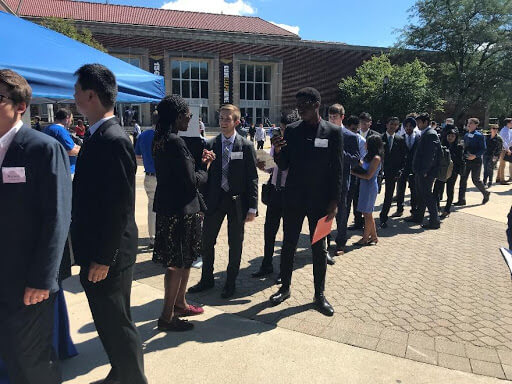
As the Industrial Roundtable (IR) career fair is a student-organized event, it is tailored to current students rather than Purdue graduates. “We’re students, so we definitely feel what others are going through and think about that when planning the fair. We’re not thinking about students who graduated 20 years ago. We care about improving the opportunities for students who are here now, like us,” says committee member and industrial engineering student Jacob Moeckler. This is what makes IR so special; students help other students by providing extensive opportunities all in one place.
Students from freshman to senior can seek full-time employment, internships, co-ops, or simply network at the Roundtable with potential employers. Sophomore chemical engineering major Mary Brenner says she was interested in finding a summer internship. “The fact that there are just so many companies, offering even more opportunities is what makes the Industrial Roundtable so special,” she says.
For students to earn a spot with one of the companies, they must be prepared and well-rounded individuals. Professional business attire is highly encouraged by employers as a way to leave a lasting first impression. Students should also carry multiple resumes to give to potential employers. Most important of all is how and what you present about yourself to the representatives.
Cummins representative Songa Rugangazi shared tips for what makes a top candidate:
- Know the position in which you are interested.
- Demonstrate relevant academic, professional, or research experience to show you are knowledgeable about the position.
- If you have not done anything related to the position, elaborate on other professional experience and share how it correlates.
- Highlight leadership roles and extracurriculars to illustrate that you are a multidimensional scholar.
- Present yourself with energy and enthusiasm.
Students who follow these five tips are sure to be top candidates for whatever they pursue. While it may seem difficult to follow them all, it’s much simpler than it seems. First, state what you want to do. Then share what you’ve done in the past and how it relates. That’s it. And being a Purdue student gives you an automatic edge.
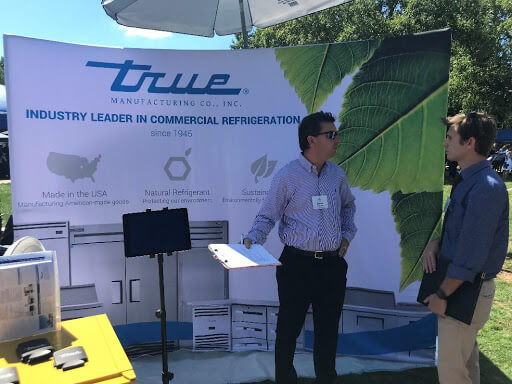
“We like students who are prepared and have a vision of what they’ll be doing for us,” says True Manufacturing representative Jason Hamon. “Purdue students have a great reputation and are traditionally very well prepared for what we ask of them.”
While the immense size and number of opportunities at the event is great, it can be overwhelming. As a freshman walking into his first career fair, I didn’t know what to expect. I noticed all the company representatives, rushing students, and long wait lines, and couldn’t help feeling nervous. I stood there staring at Memorial Mall with no other choice but to plunge into the chaos.
I stepped in line at my first desired company to anxiously wait for my turn. My mind was racing, thinking about what I should say. Within a few seconds, the friendly students beside me noticed my nerves and introduced themselves. They began reviewing their introductions, also known as elevator pitches, to get my reactions. I then shared my elevator pitch, stuttering more than a little, and they gave me great feedback and encouragement. Those two students made all the difference in the world and calmed my nerves significantly.
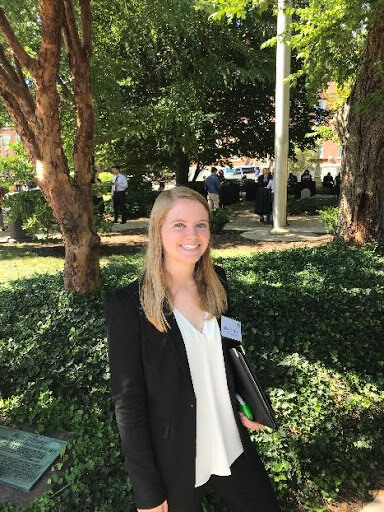
Eventually, my turn to speak to the company representative arrived. My elevator pitch seemed to be going smoothly until the woman told me I had waited in the wrong line. I had introduced myself to a company interested in majors other than my own. However, she did not cut my introduction short once she heard I was a hopeful chemical engineer. She let me talk and get my first-company jitters out of the way, while also offering advice on how I should approach other companies. This company representative was nice to me, even though I was not a qualified candidate. This surprised me.
I continued to explore the career fair and speak with other companies and corporations. I soon found that the other students and employers were just as friendly and helpful as the woman at the first booth I had visited. All the students were hoping for employment, an internship, or a co-op opportunity. They were outgoing, informative, and willing to give useful advice. Employers wanted strong candidates, so great advice was given even to students who didn’t make the cut. Even after I had failed a few more elevator pitches, representatives still held up the long lines to speak with me about how to improve my chances. I was shocked to have felt a very friendly and helpful vibe throughout the entire event, which was extremely relieving for me as a freshman.
Although I may not receive any of my desired internships, I gained valuable experience in an extraordinary environment. Now I am excited and feel completely prepared for next year’s Industrial Roundtable.
Additional Photos
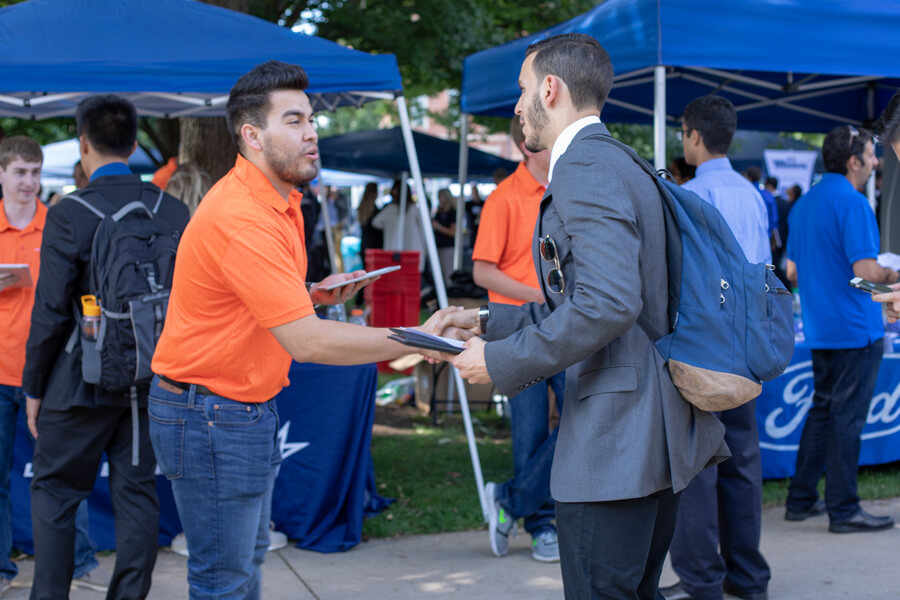
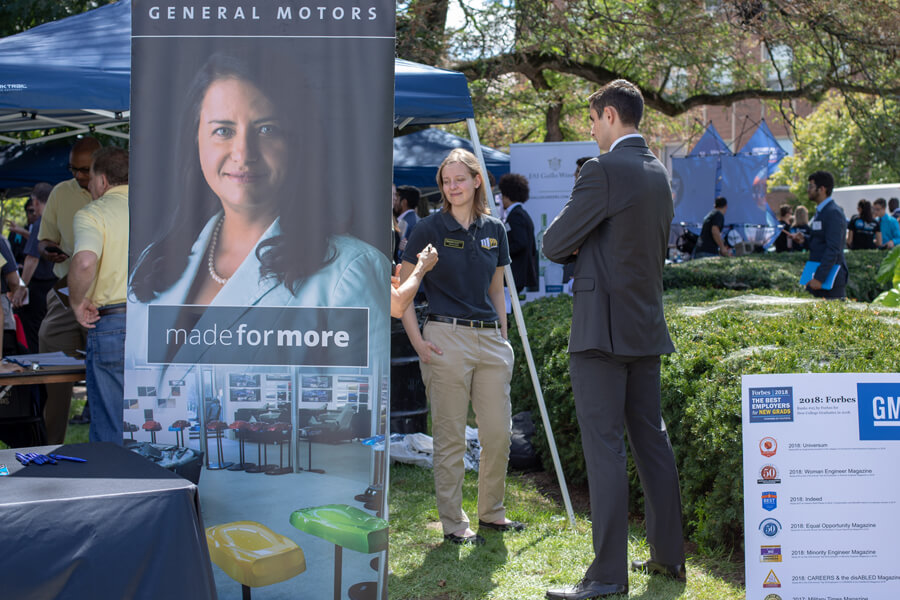
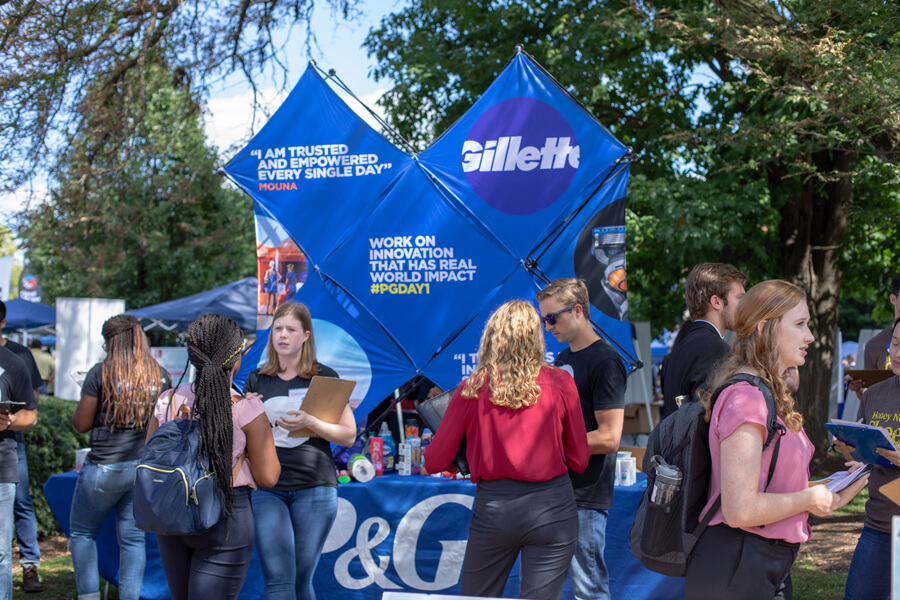
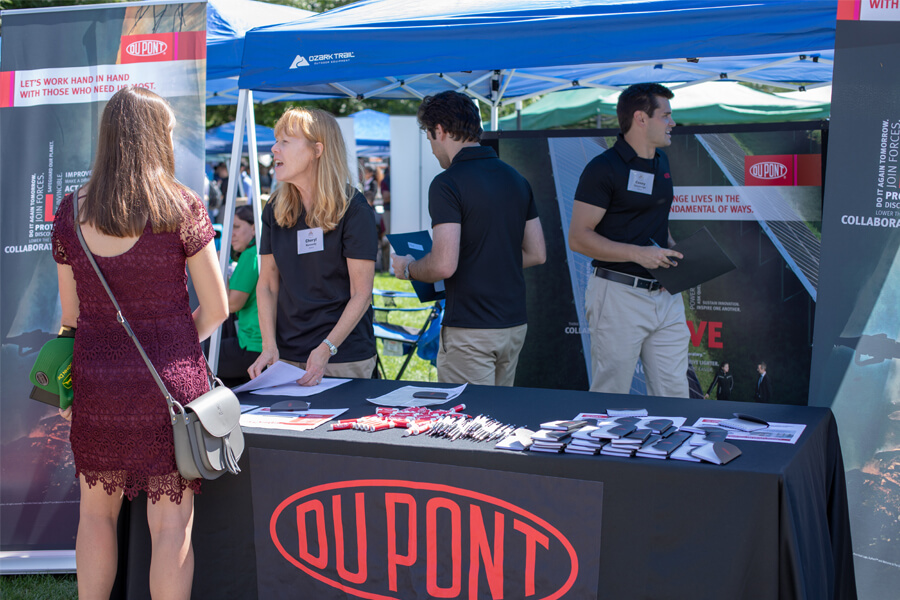

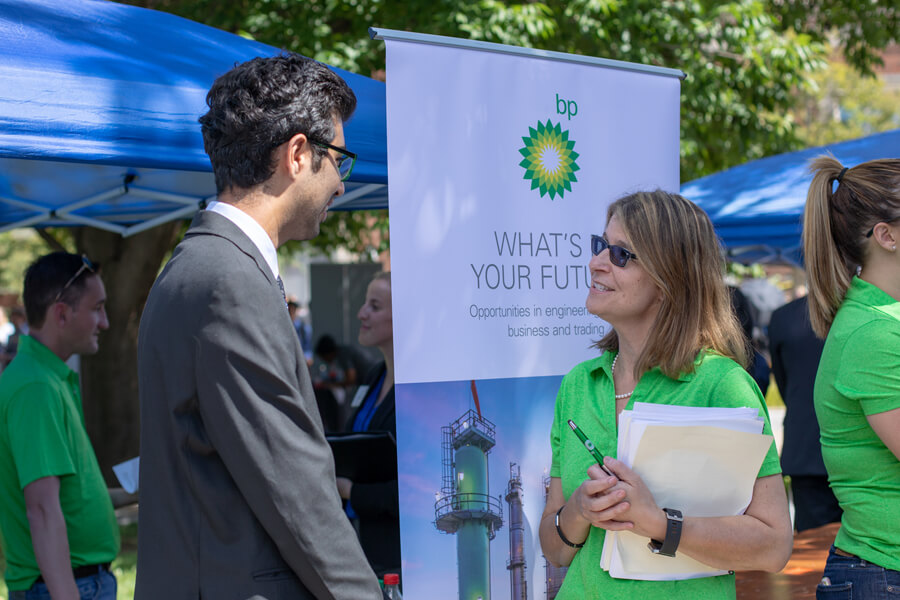
Author: John Salvas, FYE, 2022
